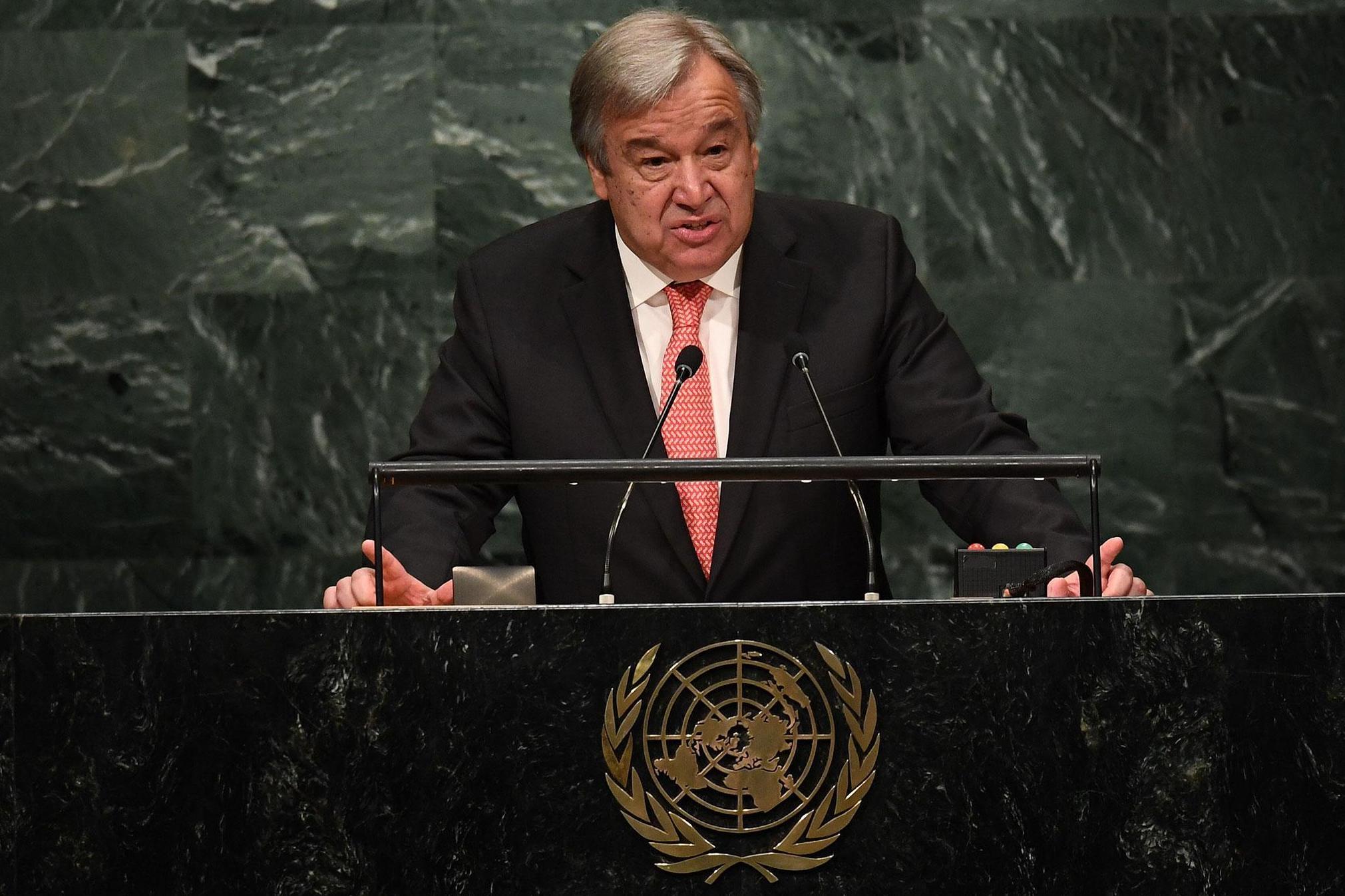United Nations appoints Antonio Guterres as new Secretary-General
The former Portuguese Prime Minister pledged to combat terrorism and political populism, to promote gender equality and to seek a peaceful resolution to the Syrian conflict

Your support helps us to tell the story
From reproductive rights to climate change to Big Tech, The Independent is on the ground when the story is developing. Whether it's investigating the financials of Elon Musk's pro-Trump PAC or producing our latest documentary, 'The A Word', which shines a light on the American women fighting for reproductive rights, we know how important it is to parse out the facts from the messaging.
At such a critical moment in US history, we need reporters on the ground. Your donation allows us to keep sending journalists to speak to both sides of the story.
The Independent is trusted by Americans across the entire political spectrum. And unlike many other quality news outlets, we choose not to lock Americans out of our reporting and analysis with paywalls. We believe quality journalism should be available to everyone, paid for by those who can afford it.
Your support makes all the difference.The next Secretary-General of the United Nations has pledged to combat terrorism and political populism, to promote gender equality and to seek a peaceful resolution to the Syrian conflict when he takes over the leadership of the organisation next year.
Antonio Guterres, the former Socialist Prime Minister of Portugal, was appointed to the role of UN chief on Thursday after a unanimous vote by the international body’s 193 member states. In his first address at the UN headquarters in New York, he said he would be a “bridge-builder” and “honest broker” after he officially becomes the world’s top diplomat on 1 January.
Mr Guterres, 67, spent a decade as the UN’s High Commissioner for Refugees and is expected to be a more high-profile figure than the outgoing Secretary-General, South Korean Ban Ki-Moon, who is standing down after two terms. Mr Guterres, who was backed by every member of the UN Security Council, was one of 13 candidates for the position, including seven women.
The first former head of government to be named Secretary-General, he enjoyed a warm reception from the assembled officials following the vote, even as he reminded them of the “challenges” faced by the organisation, and the “limitations” of his position. He promised to take a “humble approach” to “the dramatic problems of today’s complex world”.
His previous role saw him tackling refugee crises across the globe, not least in Syria, which remains the most pressing item on the UN agenda. Having previously urged Western powers to take a greater role in helping refugees, he will now press for those governments to find a solution to the suffering of the Syrian people, which, he said, “breaks my heart”.
Following the precipitous breakdown of a recent ceasefire, the US and Russia are meeting for fresh talks on the Syrian war this weekend in Switzerland, along with regional and European powers. “Whatever divisions might exist now it’s more important to unite,” Mr Guterres said. “It’s high time to fight for peace.”
Mr Guterres was congratulated on his appointment by world leaders including US President Barack Obama and Russian President Vladimir Putin. Mr Obama said “he had the character, vision and skills needed to lead the United Nations at this critical moment,” while Mr Putin called from the Kremlin to wish him success in his “important and demanding” role.
In his speech, Mr Guterres also warned of the mutually reinforcing rhetoric of terror groups and of populist political movements – an apparent reference to the European far-right and to the rise of Donald Trump in the US. “We must make sure that we are able to break these alliances between all those terrorist groups or violent extremists on one side, and the expression of populism and xenophobia on the other side,” he said.
Join our commenting forum
Join thought-provoking conversations, follow other Independent readers and see their replies
Comments